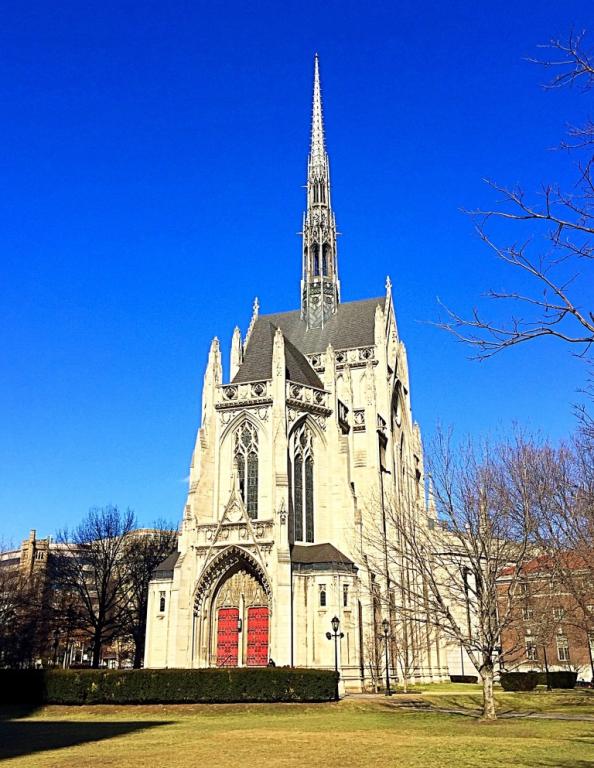 Most of yesterday I found myself living within the world of William Wilberforce, which has been a habit of my heart for a long time. Simply said, I have chosen to think about life in light of his hopes, his commitments, his longings— and plan to keep at that until I can’t.
Most of yesterday I found myself living within the world of William Wilberforce, which has been a habit of my heart for a long time. Simply said, I have chosen to think about life in light of his hopes, his commitments, his longings— and plan to keep at that until I can’t.
in the morning I met with my neighbors and friends, Todd Deatherage and Mark Rodgers. Years ago we chose to live by the credo of the Clapham community of Wilberforce and his friends, “Choose a neighbor before you choose a house.” And so we did, doing our best to have some kind of honest life in the midst of the metropolitan complexity of Washington DC. We live in different houses, and drive different cars, but we do think together and talk together and pray together and work together, in a unique way living out a common vocation but within our different occupations, i.e. they are political visionaries and strategists, and I am always the professor.
And then sometimes, like on Labor Day earlier this week, we gather together as families, celebrating the change of seasons— as we do at Christmas and New Year’s, Memorial Day and other important markers along the way, remembering to remember that we live life together.
But on Wednesday mornings, week by week, the three of us try to meet together. With travel commitments taking us far and wide, we don’t always accomplish this, but that is our rhythm. And today we met for a longer conversation, wanting to hear from each other about the seasons we are in, pondering more “season of life” questions and challenges. We each talked, and we all listened— along the way offering input to each other, asking questions of each other. And we prayed too, offering our frail lives to God, yearning for them to be about things that matter.
And in the afternoon I lectured at the American Studies Program on Capitol Hill, where I spent many years teaching. This is the students’ first week here in Washington, and I spoke about the challenge of learning in the capitol city, this city of great glories and great shames. We talked about learning to know the world, and love it at the same time… about making peace with proximate justice… about the complex context of learning and life in a pluralizing, secularizing, and globalizing world… about the reality that culture is upstream from politics… and finally about Wilberforce and his friends, committed as they were to things that mattered to God and the world, spending the years of their lives on questions of consequence for England and history.
Given my longing for coherence, for the connection of belief to behavior across the whole of life, I always want students to see that the passion for public justice manifest in Wilberforce’s pursuit of the abolition of the slave trade and slavery, was born from a profound knowledge of God. He saw the world as God sees the world, he loved the world as God loves the world, and therefore he spent his life working on an incredibly complex issue which was the heart of the political economy of his day.
Ours is a messy world where sausage is made all day long, and none of us can ever be completely coherent. We stumble and falter, always falling short— and yet, we long for something more. I don’t think we ever have to make a final choice between belief and behavior though, backing into a compartmentalization of worldview and way of life— at least we don’t if we can find our way into the deeply-wrought kind of integrity that was Wilberforce’s.
Towards the end of the lecture, I showed them a prized book, A Practical View of the Prevailing Religious System of Professed Christians, in the Higher and Middle Classes, Contrasted With Real Christianity, or as it is more popularly known, Real Christianity. My copy was published more than 200 years ago, and while beautiful, is almost ancient. But within the book I keep a letter from Wilberforce himself, simply to remind myself of his humanity. He too had a life, he too had things to do, he too hoped and worked, and he too lived in a world full of relationships and responsibilities— like me, like all of us.
For most of my life I have looked over Wilberforce’s shoulder and through his heart, as best as I can understand him, living two centuries later. He has been a good teacher, giving me visions for vocation that have tethered me to commitments that are hard to keep— and honestly are only worth keeping if they are born of the deepest things, the truest truths about God, ourselves and the world. Why else would we?
I hope the students were drawn in, as I have been drawn in, able to see that they will need stories like this if they are going to find their way into the world, working at the questions of their generation with the courage and compassion that marked Wilberforce over the years of his life, a man with a very public vocation born of a very personal faith. May it be so.
Originally posted to the Commons Blog from The Washington Institute for Faith, Vocation and Culture.











